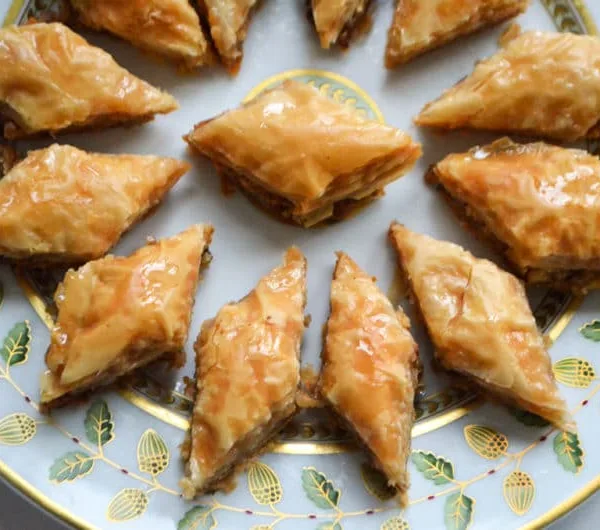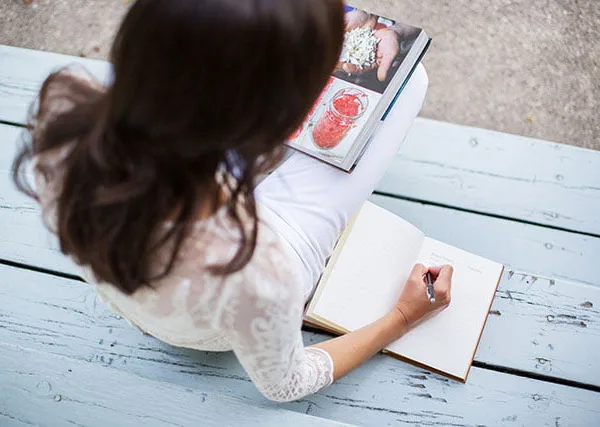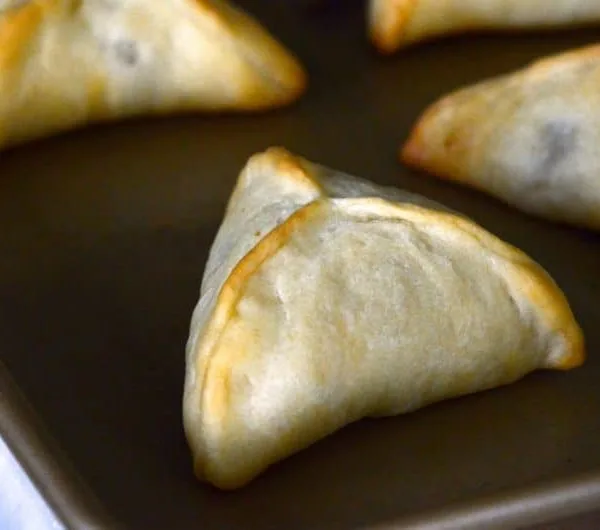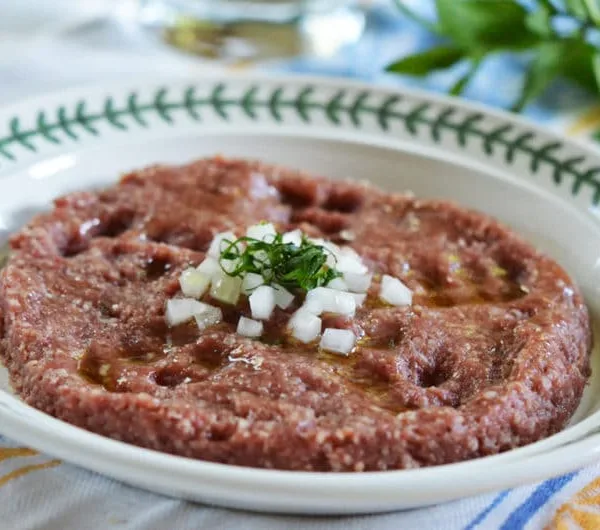Aunt Hilda’s love language
Aug 23, 2023
This post may contain affiliate links. Please read our disclosure policy.
This is my original story and family memory post when I published the recipe for Lebanese Lifft pickles. Click over to get the recipe for Lebanese Turnip Pickles.

The Abood sisters, my aunts, had talents. Helen sang like a
star, Hilda cooked like magic. When their mother died, Hilda seized her tasks
like a women who had finally found her mission in life. She would go into the
kitchen and heal the family of its loss, and in return would find an essential
aspect of her identity.
I remember a few years ago when she called everyone over for
a meal, to give comfort to her brother, my Uncle Fred. He had recently learned
he had cancer of the esophagus, a terrible irony for a man who loved food as he
did. Aunt Hilda set her defenses against the menace of death as it hovered over
the family: prayer and cooking. She began preparing the dinner three days
ahead, making the laban and pickling the lift, Lebanese
pink turnips. The shocking pink lift, achieved by a red beet slipped into the
jar, calls to mind sugar flowers on a birthday cake, pink bubble gum, or some
other unnatural sweet. But these crunchy pickles are strong and piquant beneath
their sweet-seeming technicolor, certainly a surprise to an unsuspecting eater.
Lift is like the Lebanese themselves, typically well-dressed in unabashed
style, and underneath: Strength. Edge. And always, piquant humor.
___________________________
Aunt Hilda’s menu that night included so many dishes that they couldn’t all
fit on the table and sideboard. She rolled one hundred grape leaves cooked with
lemon and butter over pork neck bones, roasted two chickens and made four cups
of rice for hushweh, sautéed two pounds of ground beef for househ,
kneaded four and a half pounds of specially ground beef for kibbeh nayeh
and sanieh. There were bowls of romaine with lemon and oil, laban with
mint and cucumbers, thickened labneh with olive oil, mashed potatoes,
green beans with caramelized onion and toasted almonds, relishes of olives,
radishes, peppers.
The table was set with Aunt Hilda’s good white and gold wedding china. Her
house was spotless, her furniture elegant, everything from carpet to couches in
white. When people arrived, they came in through the garage door, whose vantage
point allowed Aunt Hilda to greet and farewell everyone with love as only she
could–and from the moment they stepped out of their cars in her driveway.
“You’re so delicious,” she greeted me, “I could eat you without salt.” Each one
of us thought we were her favorite. The men walked through the kitchen and made
a little plate of grape leaves to take into the family room for an appetizer,
where they turned on the football game. Aunt Hilda took them glasses of ice
water. Whenever anyone arrives at the house of an Abood, they are offered, or
just handed, a glass of ice water.
When we did eat, it happened quickly: Aunt Hilda said a generous blessing,
what a gift it was for her to have us at her house, and we remembered the
faithful departed, may they rest in peace. Uncle Fred ate small portions of
chicken and grape leaves, his stomach being tender, and as he ate I saw him
stroking Hilda’s arm next to him. Uncle Dick piled his plate high; his hunger
to satisfy his appetite was second only to his hunger to demonstrate his
appreciation for his sister’s food. He reached for a radish as he ate—radishes
Aunt Hilda had sent me on a special trip to the store to buy that afternoon.
Dick likes those, she said, so we must have them on the table. We both saw him
take a radish and eat it, and when I looked at her she smiled and winked back
to say, “Good thing we got the radishes!”
__________________
Most people were nearly finished before Aunt Hilda landed in her chair and
the food was passed to her. She looked around to see who had eaten what, and
asked each one to eat whatever was missing from their plate or to take more of
whatever had been finished on the plate already. When I declined the mashed
potatoes, she tsked her tongue and said she knew they weren’t hot
enough, that nothing was hot enough because she’d cooked it all too early. How
could I have forgotten the cardinal rule of eating with Aunt Hilda? Always take
some of everything, whether you want it or not. The men headed back to the
family room, saying, “Hilda, you’ve done it again.” She denied the compliments
radiantly, savoring the response to her herculean effort.
Then the dance of the leftovers began: Hilda begged each of us to take kibbeh
and grape leaves and hushweh. There was refusal; she reminded us she is alone
and can’t possibly eat it, it didn’t taste good to her, and she doesn’t want to
eat it again anyway. My mother reminded her that the cook never thinks the food
she’s been staring at for three days is as good as the guests who come to it
fresh. I broke the cycle by saying I’d like to take some of her spicy lift,
which was excellent, famously so. Her pleasure was evident as she launched into
a litany of all of the people she knows who feel the same about her lift, and
“they rave about it!” When Aunt Pat and Uncle Fred walked out
intentionally without leftovers, Aunt Hilda sent me running out to their car
with a bundle of grape leaf rolls. “I don’t care if he can’t eat them,” she
said. “He loves them, and I just want him to have them.”
__________________










